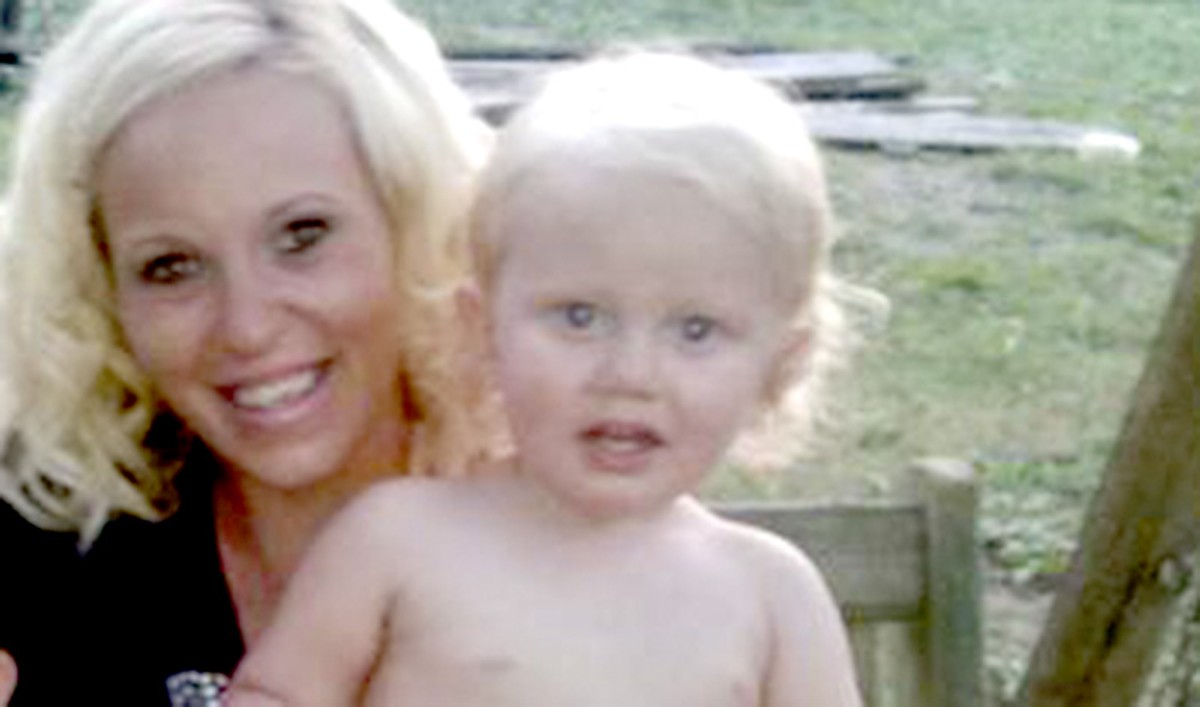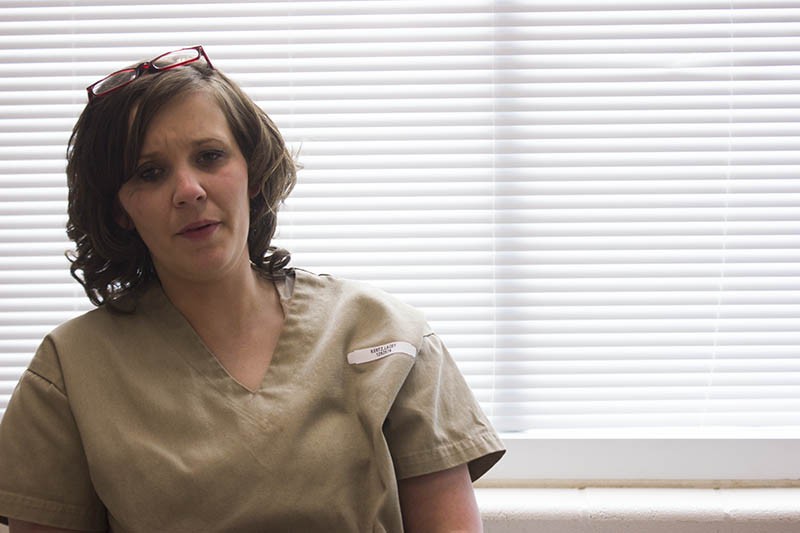The next month, Jefferson County Prosecutor Forrest Wegge charged Kertz with three felonies, including second-degree murder, child neglect resulting in death and child endangerment. Sergeant James Kausler found Kertz later that day in the basement of a friend's home, hiding in a dryer. Sergeant Kausler let her smoke a cigarette before placing her in handcuffs and driving her back to the Jefferson County Jail.
Helms learned of the charges when she saw her former foster child's mug shot on television. "I couldn't believe it was her," Helms says. "She almost looked like the walking dead. I mean, she was so emaciated."
In a jail interview with Jefferson County Detective Hollie Lunsford, Kertz "remained adamant she was not sure how Carson died." She also told Lunsford that she "illegally buys drugs because she doesn't have insurance," naming Judith and Roger Stadler, as well as an aunt and uncle, as sellers. Lunsford asked Kertz whether they were the same people speaking about her in the media. Kertz nodded and said she felt a "hell of a lot better" for getting that information off her chest, according to the police report.
In November 2015, prosecutors agreed to downgrade her charges to involuntary manslaughter and two counts of child endangerment — one for the meth, the other for the morphine. Kertz took the deal. On the day she pled guilty, she faced a maximum of 30 years in prison. Judge Mark Stoll sentenced her to seventeen.
Judge Stoll asked Kertz if she had anything else to say.
"Can I tell my mom I love her?" Kertz asked. She looked back at Betty Helms, the only family member who'd shown up for her sentencing, and said, "I love you."
Women's Eastern Reception, Diagnostic and Correctional Center sits on the eastern edge of Vandalia, across from a railroad track and down the street from a Mexican restaurant. The facility's red siding suggests an oversized barn, albeit one surrounded by a curved security fence and surveillance cameras.
The prison's visiting area is open, lit by fluorescents and enclosed by vending machines. Visitors can play Scrabble or watch Monsters Inc. with their loved ones. A side door opens to what must be the highest-security playground in Missouri.
Kertz arrives late to meet with a reporter owing to issues with the daily count. She says she's agreed to an interview with RFT for the same reason she cooperated with a non-profit called COPE24 (Change Our Parenting Experience) to produce a documentary about drug use and child neglect.
"My baby lost his life to my addiction, and it can happen to anybody in a quick second. I made terrible choices," she says. "If somebody could just learn from that or see things in a different light or perspective, I think it would be worth it. It's using a tragedy to help others."
Kertz spends her days tutoring other offenders. She attends Sunday services and crochets baby hats for "the little ones" as part of a restorative justice program. She is 22 months sober, exactly the length of Carson's life.
Clear-minded and incarcerated, Kertz has had plenty of time, and she'll have plenty more, to reflect on the death of her son. "I had every intention of not being a product of my environment, of breaking the cycle. And I fell right into it," she says. "I feel like a huge failure."
"What are you in for?" goes a prison icebreaker. Kertz doesn't hide from her crimes. If time is short, she'll simply say "three class-C felonies," common parlance behind these walls.
But if prodded, she'll relay what she thinks happened to Carson in October 2013. Kertz's theory to this day is that her son swallowed a stray morphine pill during a moment of inattention. Inmates have responded with stories of catching "their baby with something," perhaps just narrowly avoiding a similar fate.
Kertz's face lights up when she talks about her children. Choking back tears, she recalls a game called alligator, which involved Carson trying to bite her finger. He chased his mother around, saying "hold you, hold you!" Another favorite phrase: "Chubbie shake your body." They blasted "Jingle Bells" even in the summer and danced around their home. Kertz recited cheerleading chants to her boys: "H-O-T-T-O-G-O! Carson and Clay are hot to go!"
Although she has only served two months of her sentence, Kertz speaks animatedly about her plans upon release. "I still have a son. I'm going to do anything and everything I can to be a part of his life," she says. "And eventually, I want to open a foundation in [Carson's] name to help other mothers who may be in the middle of addiction and don't have sober help, so maybe a home or something they can go to and get an education."
To pass the time, Kertz reads V.C. Andrews, the Bible and books about the afterlife. She's saving up for a CD player, which costs about $30 at the commissary. When she has money for stamps, Kertz writes letters. In one of those letters, written to Betty Helms, she dotted her i's and exclamation points with hearts.
Her message, penned on yellow legal paper and stored in a chest next to Betty's rocking chair, reads: "Mom, if I do not mind prison — is that weird? I do NOT love it but I needed this opportunity to be able to get myself together. ... How are you? What is new? What are the doctors saying? Are you going to church? Well write me back."
On the day Carson would have turned four, Kertz wrote her deceased son a letter, placed it in her bedside locker and cried herself to sleep.







